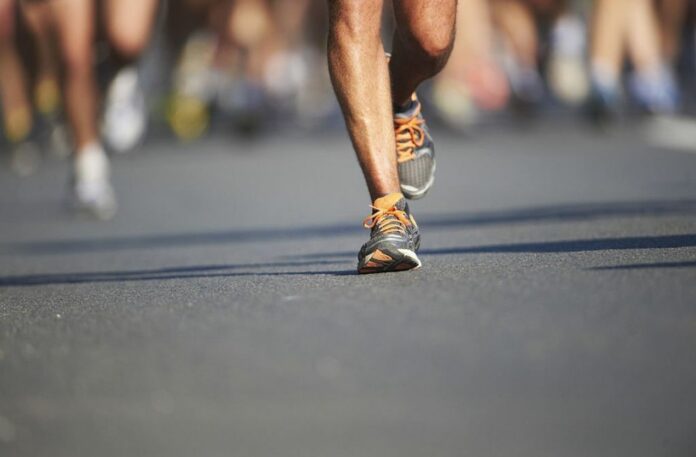Running for recreation can bring many benefits for both physical and mental health, however, it’s possible for some people to become addicted to it, leading to health problems.
A study in Frontiers in Psychology found that exercise dependence is a common issue among recreational runners and used the concept of escapism to understand the relationship between running, well-being, and addiction.
“Escapism is an everyday phenomenon among humans,” points out lead author Dr. Frode Stenseng, “but little is known regarding its motivational underpinnings, how it affects experiences, and the psychological outcomes from it.”
Running to find something or to get away?
“Escapism is often defined as ‘an activity, a form of entertainment, etc. that helps you avoid or forget unpleasant or boring things’. In other words, many of our everyday activities may be interpreted as escapism,” explains Stenseng. “The psychological reward from escapism is reduced self-awareness, less rumination, and a relief from one’s most pressing, or stressing, thoughts and emotions.”
Escapism can be beneficial by providing a new perspective, or it can be harmful by preventing individuals from addressing important issues. Adaptive escapism, which involves seeking out positive experiences, is called self-expansion, while maladaptive escapism, which is used to avoid negative experiences, is called self-suppression. Running can be seen as a form of exploration or evasion depending on whether it is used for self-expansion or self-suppression.
“These two forms of escapism are stemming from two different mindsets, to promote a positive mood, or prevent a negative mood,” adds Stenseng.
Activities used for self-expansion have greater positive effects and long-term benefits compared to self-suppression, which can suppress both positive and negative feelings, leading to avoidance.
Self-suppression is linked to being dependent on exercise
In a study, 227 recreational runners were recruited and asked to fill out questionnaires that assessed escapism, exercise dependence, and satisfaction with life to measure the participants’ subjective well-being. The study consisted of both men and women with varying levels of running practices.
The researchers found that there was minimal overlap between runners who preferred self-expansion and those who preferred self-suppression as forms of escapism.
The study found that self-expansion had a positive correlation with well-being, whereas self-suppression had a negative correlation. Both modes of escapism were related to exercise dependence, however, self-suppression had a stronger association with it.
The study also found that neither escapism mode was linked to age, gender, or the amount of time spent running, but both had an impact on the relationship between well-being and exercise dependence.
Whether or not a person met the criteria for exercise dependence, a preference for self-expansion was still linked to a better sense of their own well-being.
Even though becoming dependent on exercise reduces the health benefits of exercise, it seems that feeling less healthy may be both a cause and a result of becoming dependent on exercise. In other words, the dependence may be caused by and contribute to feeling less healthy.
Similarly, a psychological factor that encourages exercise dependency might be the experience of positive self-expansion.
To further understand the motivational dynamics and effects of escapism, additional studies using longitudinal study methods are required, according to Stenseng. But these findings may help people understand what motivates them and could be used to help people who are trying too hard to do something that isn’t good for them.
Source: 10.3389/fpsyg.2022.1035196
Image Credit: Getty
